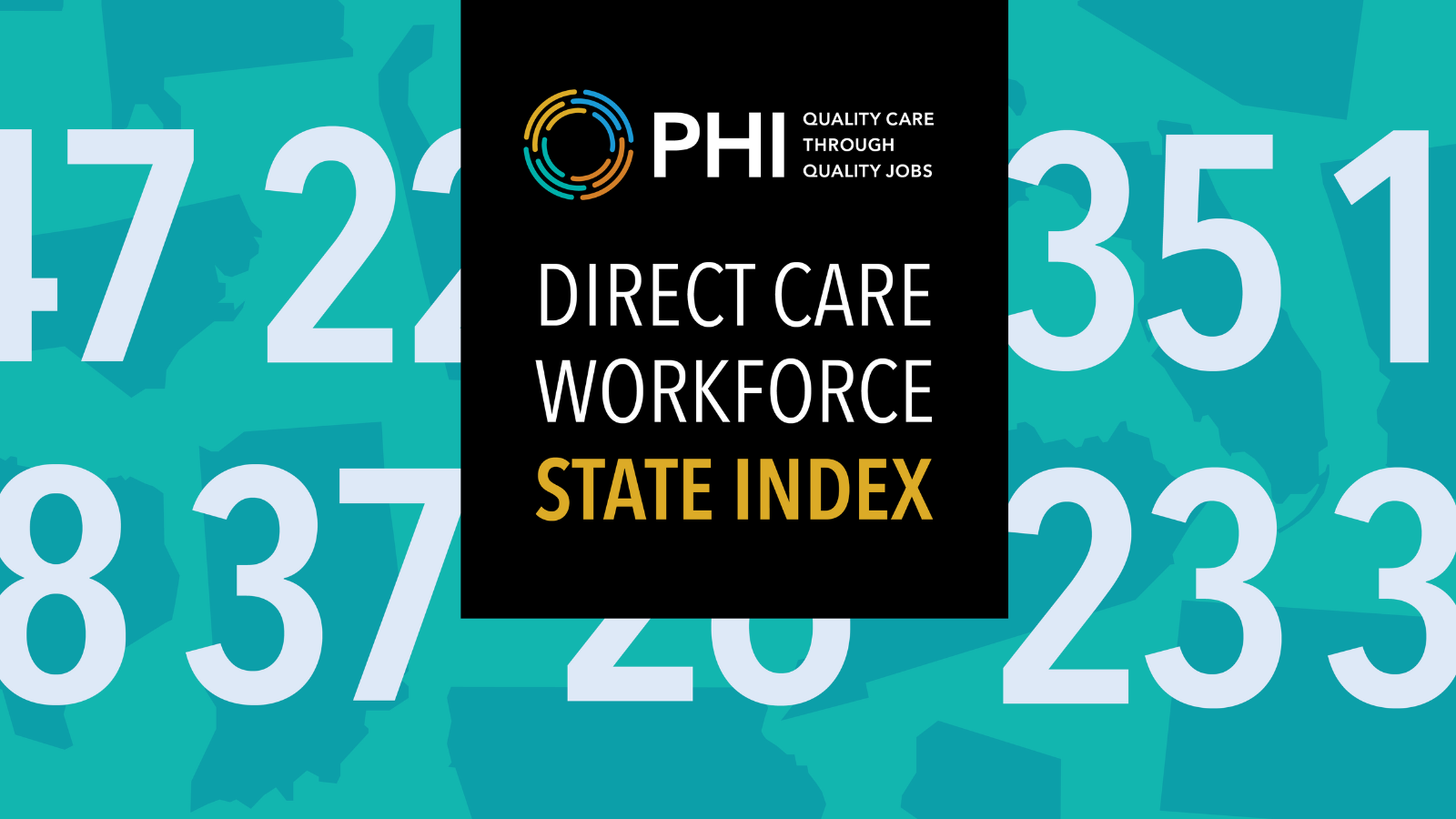PHI Launches Updated Direct Care Workforce State Index and Report

PHI recently updated our Direct Care Workforce State Index and published an accompanying report that analyzes state policies and direct care workforce outcomes across all 50 states and Washington, DC. The State Index helps policymakers, advocates, and other state leaders understand how their state currently supports direct care workers, identify areas for improvement, and see how their state ranks in comparison to other states.
The State Index, an interactive online tool, ranks states on two composite measures: a worker-supportive state policy measure and a direct care workforce economic measure. The worker-supportive policies measure includes direct care worker-specific policies, such as training standards, wage pass-through policies, and state-funded matching service registries, as well as overall workforce policies, such as state minimum wages, Medicaid expansion, paid leave, and more. The direct care workforce economic measure includes median wages, wage competitiveness, median annual earnings, poverty rates, housing-cost burden, and health insurance coverage.
As when PHI first launched the State Index in January 2023, Washington State ranks first overall in the 2024 update, followed by Rhode Island, Oregon, Maine, and New Jersey. Importantly, however, the State Index data show that even the highest-ranking states have room for improvement. For example, direct care workers in Washington State still earn $2.69 per hour less than workers in comparable jobs in other industries, and about a quarter of the state’s workforce lives in or near poverty (below 200 percent of the federal poverty level). The lowest-ranked states are Texas, Mississippi, Alabama, Louisiana, and Tennessee, reflecting a critical need for additional direct care workforce investments.
The accompanying report—Direct Care Workforce State Index: Mapping Workforce Policies and Outcomes—discusses the State Index rankings in more depth and highlights particularly supportive state actions, including:
- Through Senate Bill 525, California committed to raising the minimum hourly wage for health care workers, including certain direct care workers, to $25 over the next few years.
- In 2023, Michigan became the first state in 58 years to repeal its “right to work” law. By rescinding this damaging law, which creates barriers to unionization and is shown to produce worse economic outcomes for direct care workers, Michigan lawmakers made the state more union- and worker-supportive.
- In 2022, Colorado extended its law that protects against employment discrimination based on sexual orientation (and other characteristics) to domestic workers. This change was notable because domestic workers, a group that includes many direct care workers, were historically excluded from employment protections at the federal and state levels.
The report includes a range of recommendations for state action. For example, to boost wages to a more livable and competitive level, states can raise their minimum wages, set a higher wage floor for direct care workers, or implement wage pass-throughs. Other policy recommendations include strengthening training standards, funding matching service registries, expanding Medicaid, establishing paid leave policies, and expanding earned income tax credits.
PHI’s State Direct Care Workforce State Index and our accompanying report have been made possible by generous funding from the W.K. Kellogg Foundation.
PHI’s experienced team of researchers, policy analysts, and workforce development experts work together to help states design and advance direct care workforce policy and practice nationwide. PHI partners with states to conduct cutting-edge research and analysis, inform the design of direct care workforce policy interventions, and engage in on-the-ground advocacy initiatives. Learn more in our resource on specific state policy strategies for improving direct care job quality and stabilizing the workforce.






